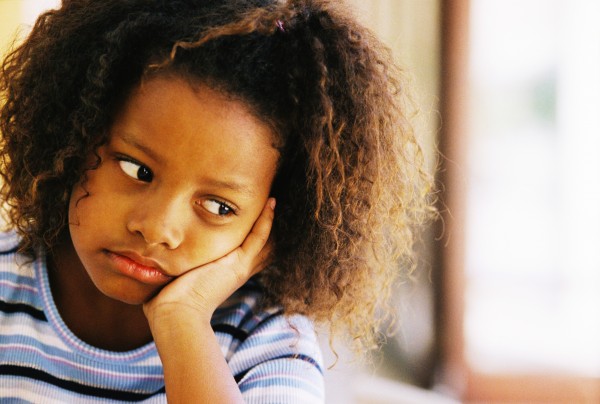Withhold not discipline from the child: for if thou beatest him with the rod, he shall die admonished by the Holy Book if not obeyed by parents in child upbringing is said to attract shame and embarrassment to the family and the society, declared a clergyman.
Speaking during this year’s Children’s Day celebrations, Pastor Sam Etok observed that inability by many parents in the society to instill discipline in their children through corporal punishment has compelled them to wrong doings.
Etok preaching a sermon at Mountain of Fire and Miracles Ministries, South South 33 Region, Uyo on Sunday decried the attitude of some parents in pampering their children when they commit crimes instead of disciplining them to serve as a deterrent.
The Regional Overseer stated “Unfortunately, many of our children at formative age exhibit ungodly attitudes and characters, we (parents) condone them. As the children grow up, they will tell their parents ‘We want to go out and would come back tomorrow’. At this stage, the parents cannot stop them because the children now appear incorrigible due to indiscipline.
“Many parents refuse to chastise their children. If a father wants to discipline an erring child,the mother will say ‘leave my child o.’ If the mother wants to discipline the child, the father will say ‘Do not beat my child o.’
“When parents shy away from punishing their children for acts of insubordination or otherwise on the basis of love, then the children will perpetrate more havoc instead of repenting from the delinquent behavior.
“Do not spare the rod in disciplining your children. If you fail to bend them when they are young, you cannot do so when they grow old. By this time, they will become independent, take independent decisions, choose their friends and act on their own without seeking parental counseling.”
He recalled as a child how his senior brother used to beat him 12 strokes if he failed to pick first position in the primary school, saying though this was scary, it made him to be serious with his studies and to pass his examinations even up to university level in better grades.
“We pet our children to a fault if they do wrong things instead of rebuking them. When they grow up, they join secret cults, take to drug addiction, join bad gang and live wayward life which would bring embarrassment and shame to the affected families,” the cleric observed.
To make children great in order to sustain the much-needed societal growth and development, he, therefore, enjoined parents to properly discipline their children and inculcate such good virtues as love, respect to elders, humility and Godliness in them.
A research shows that as at 2006, about 106 countries outlawed corporal punishment, including the United Kingdom and other European countries following rulings on corporal punishment by the European Court of Human Rights.
However, corporal punishment is not outlawed in Nigerian homes. The legal system in Nigeria is a mix of Islamic law, English common law and customary/native law. In the southern states, criminal laws dating from before Independence in 1960 remain in force; in the northern states, criminal laws enacted during the settlement of 1960 are still in force, together with Shari’a laws enacted following the adoption of the 1999 Constitution. The Shari’a laws in the north were passed by individual states, mostly based on the first ones enacted in Zamfara. A Harmonised Shari’a Penal Code and a Harmonised Shari’a Criminal Procedure Code have been drafted but have not been widely adopted. In 2003, the National Assembly passed the federal Child.
Corporal punishment is lawful in the home. Article 295 of the Criminal Code (South) states: “A blow or other force, not in any case extending to a wound or grievous harm, may be justified for the purpose of correction as follows: (1) a father or mother may correct his or her legitimate or illegitimate child, being under sixteen years of age, for misconduct or disobedience to any lawful command;
(2) a master may correct his servant or apprentice, being under sixteen years of age, for misconduct or default in his duty as such servant or apprentice;… (4) a father or mother or guardian, or a person acting as a guardian, may delegate to any person he or she entrusts permanently or temporarily with the governance or custody of his or her child or ward all his or her own authority for correction, including the power to determine in what cases correction ought to be inflicted; and such a delegation shall be presumed, except in so far as it may be expressly withheld, in the case of a schoolmaster or a person acting as a schoolmaster, in respect of a child or ward.”
Article 55 of the Penal Code (North) states: “(1)(a) Nothing is an offence which does not amount to the infliction of grievous hurt upon any person and which is done: by a parent or guardian for the purpose of correcting his child or ward, such child or ward being under eighteen years of age.” These provisions are also confirmed in the Shari’a penal codes in the Northern states.
Article 11 of the Child Rights Act 2003 states that every child is entitled to respect for the dignity of his person and no child shall be “subjected to physical, mental or emotional injury, abuse, neglect or maltreatment, including sexual abuse “subjected to torture, inhuman or degrading treatment or punishment”, but these provisions are not interpreted as prohibiting all corporal punishment in child-rearing.
Similarly, child rights laws at state level prohibit corporal punishment that reaches a certain threshold of severity but are not interpreted as prohibiting all corporal punishment by parents.
Nigeria is a Pathfinder country with the Global Partnership to End Violence Against Children, which was established in 2016. This commits the Government to three to five years of accelerated action towards the achievement of Target 16.2 of the Sustainable Development Goals.

